From chalkboard to smart board
In the past, classrooms in rural Ninh Binh were simple with white chalk, blackboards and rustic wooden tables and chairs, but now many classrooms have smart boards, projectors, high-speed Internet and online learning support devices. Students, who are used to paper books, are gradually getting used to the online learning environment: logging into software, submitting assignments, participating in learning forums and trying their hand at online tests. This process helps them adapt to modern learning methods, combining traditional and digital technology .
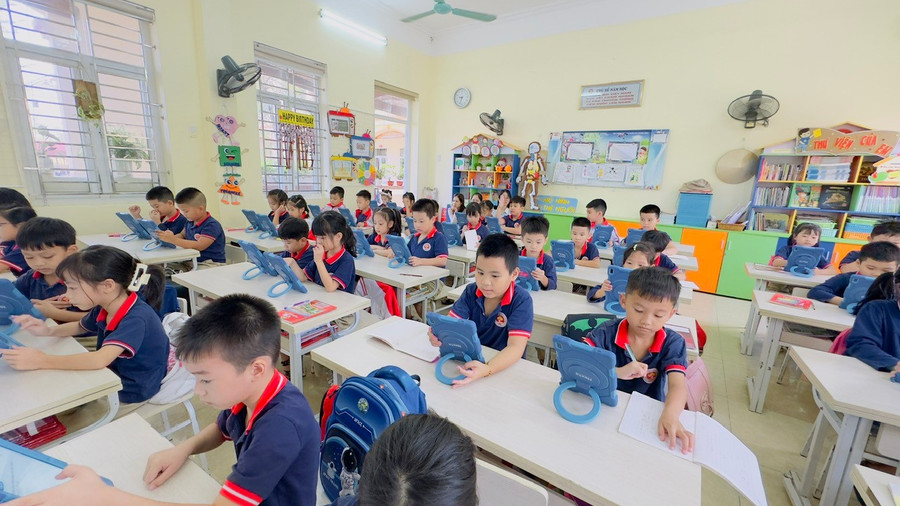
According to data from the education sector, up to now, the whole province has had thousands of classrooms equipped with projectors, hundreds of interactive boards, 100% of general schools implementing the 2018 General Education Program associated with technology applications. The digital transformation process has contributed to narrowing the gap between central schools and remote areas, helping rural students access modern learning methods.
Ms. Nguyen Thi Phuong, Principal of Truc Thang Primary School (Minh Thai, Ninh Binh) shared: “We used to think that technology was only for schools in the center, but now rural students are gradually getting used to smart boards, STEM classes or online learning. The important thing is that teachers dare to change to keep up with the times with students.”
New opportunities for rural students
Thanks to digital transformation, rural students in Ninh Binh have faster access to world knowledge. With just a computer or smartphone, they can participate in online foreign language courses, practice virtual experiments, or explore scientific knowledge on international platforms.
Many schools have piloted a blended learning model, allowing students to study both in-person and online. Some high schools also organize online exchanges with international friends in collaborative projects, helping students broaden their horizons and become more confident in communication.
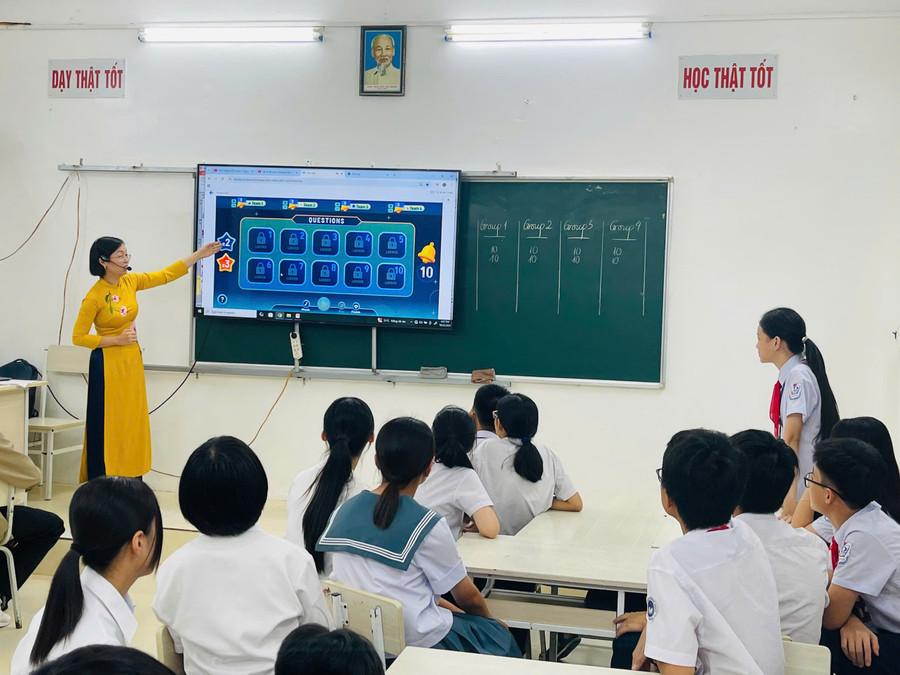
Nguyen Hoang Nghia, a 12th grader at Ly Nhan Tong High School (Tan Minh, Ninh Binh) said: “Thanks to online learning, I have been able to join an English speaking club with friends from many countries. I feel much more confident when talking to foreigners. Before, I thought only students in the city had this opportunity, now we in the countryside can do it too.”
Opportunities come not only from studying, but also from exams and talent development. Ninh Binh is famous for being a “land of learning”, and in the digital wave, achievements have improved even more. Ninh Binh students have continuously won awards in national and international competitions in Chemistry, Office Informatics, and Science and Technology. These medals affirm that technology has helped rural students narrow the gap and turn aspirations into reality.
Challenges and the way forward
Despite many advantages, the digital transformation process in rural Ninh Binh still faces many challenges. There is a gap in facilities between central schools and remote areas, the Internet in some communes is still unstable, and equipment is not synchronized, making online learning incomplete.
Teachers, especially at the primary level, are still unfamiliar with technology. Many teachers are used to traditional methods, but now they have to prepare electronic lessons and organize online tests, so it takes a long time to adapt.
Parents in rural areas also have their own concerns. Many families worry that their children will be absorbed in playing games and neglecting their studies due to excessive exposure to electronic devices. The lack of supervision skills makes this concern even more evident.
Ms. Lai Thi Phuong, a teacher at Yen Dinh Primary School (Hai Hau, Ninh Binh) shared: “The happiest thing is that students are increasingly proactive and confident when learning through technology. However, behind that is a lot of pressure on teachers to continuously improve their digital skills.”
In the big picture, digital transformation in rural education in Ninh Binh is not simply “bringing computers into the classroom”. It is a comprehensive process of change from teaching and learning methods, management methods, to results assessment methods.
“Digital transformation is an inevitable trend. The school has set a goal of not leaving any student behind. Every teacher needs to consider technology as a companion tool, not a burden. Most importantly, rural students also have equal access to digital education,” emphasized Mr. Nguyen Duy Hanh, Principal of Yen Phu Secondary School (Phong Doanh, Ninh Binh).
Digital transformation is not about “erasing” the village classroom, but about elevating it, so that the young generation in rural areas can be equipped with solid knowledge. That is the way for Ninh Binh education to continue the tradition of “land of learning” in the digital age, contributing to training high-quality human resources for the homeland and the country.
Source: https://giaoducthoidai.vn/hoc-tro-nong-thon-bat-nhip-chuyen-doi-so-post748511.html



![[Photo] General Secretary To Lam receives Assistant to the President of Russia, Chairman of the Federal Maritime Council of Russia Nicolai Patrushev](https://vphoto.vietnam.vn/thumb/1200x675/vietnam/resource/IMAGE/2025/9/16/813bd944b92d4b14b04b6f9e2ef4109b)
![[Photo] National conference to disseminate and implement 4 Resolutions of the Politburo](https://vphoto.vietnam.vn/thumb/1200x675/vietnam/resource/IMAGE/2025/9/16/5996b8d8466e41558c7abaa7a749f0e6)
![[Photo] General Secretary To Lam attends the National Conference to disseminate and implement 4 Resolutions of the Politburo](https://vphoto.vietnam.vn/thumb/1200x675/vietnam/resource/IMAGE/2025/9/16/70c6a8ceb60a4f72a0cacf436c1a6b54)


![[Photo] Prime Minister Pham Minh Chinh attends the closing ceremony of the exhibition of national achievements "80 years of the journey of Independence - Freedom - Happiness"](https://vphoto.vietnam.vn/thumb/1200x675/vietnam/resource/IMAGE/2025/9/15/a1615e5ee94c49189837fdf1843cfd11)


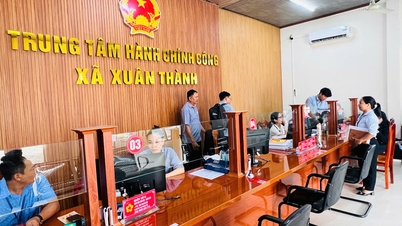












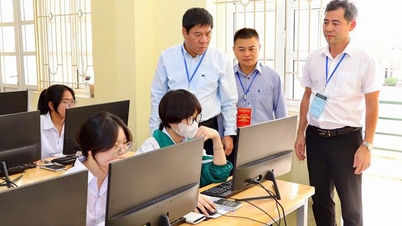






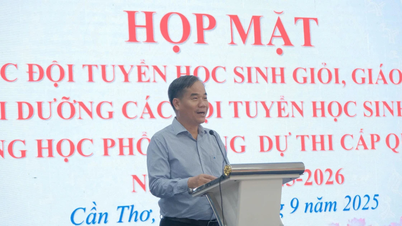
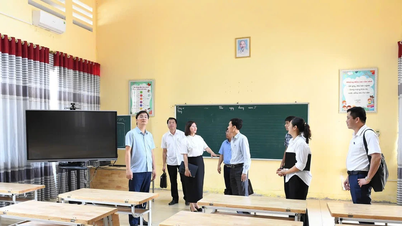


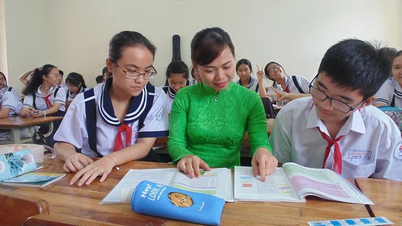


































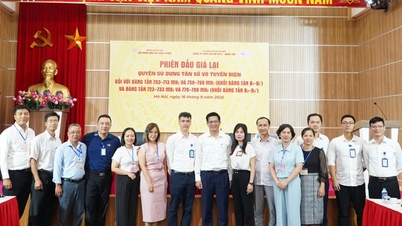









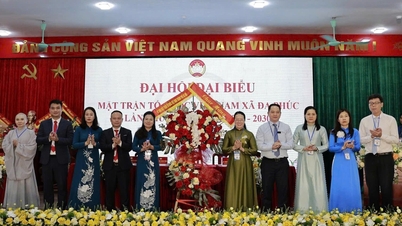





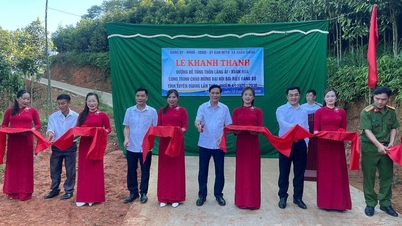

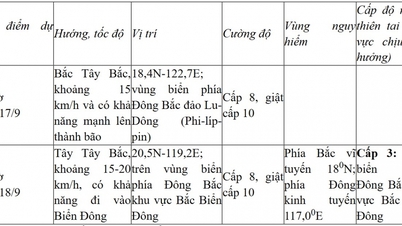
















Comment (0)